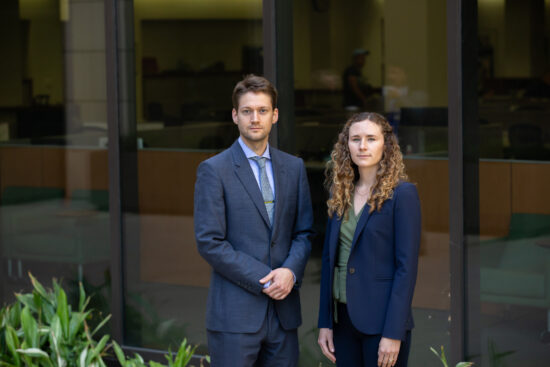Criminal Defense Clinic: Motion to Suppress- Granted!
MOTION TO SUPPRESS—GRANTED!

Marin Callaway and Holst Katsma represented a 45-year-old father who has lived in the Bay Area his entire life. Our client caught a ride in a friend’s car after work back in January 2023. During the drive, armed officers stopped and surrounded the car. Both the driver and our client were ordered out at gunpoint, and our client was handcuffed prone on the ground. Officers then carried our client, stunned and handcuffed, to a patrol vehicle where he was searched. While emptying out his pockets, officers found a small bag of methamphetamine. Only later would our client learn that the car’s license plate had been tagged by an automatic license plate reader and had been reported stolen a few weeks earlier.
Marin and Holst filed and argued a 1538.5 suppression motion, contending that evidence from the search should be suppressed for two independent reasons. First, they argued that our client was functionally arrested when he was handcuffed at gunpoint. This “de facto” arrest was illegal because police had no reason to suspect our client of having committed a crime. Being a mere passenger in a reported stolen car does not provide probable cause to arrest for possession of a stolen car or for car theft. Second, Marin and Holst argued that our client’s consent was not voluntary because it was coerced. Officers pressed our client to agree to a body search just moments after handcuffing him, face down on the asphalt, with guns pointed at his head and chest. The entire frightening incident was recorded on seven different officers’ body cameras.
At the suppression hearing, Holst cross-examined the lead investigating officer and Marin cross-examined the officer who conducted the search. Together they successfully introduced multiple exhibits and body camera videos into evidence. Marin also provided a succinct closing argument. Citing passages from their brief, the judge held that our client had no choice but to give in to the officer’s request to search. Because the consent was not voluntary, the motion to suppress was granted, and the charges against our client were dismissed!
